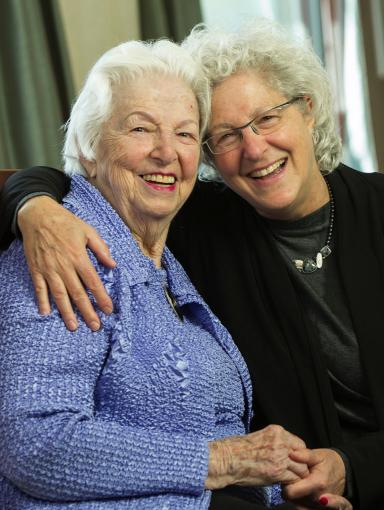Study Shows Bone Density Scans Help Identify Cardiovascular Disease
BOSTON — Researchers from Hebrew SeniorLife’s Institute for Aging Research, University of Western Australia, University of Sydney, and Edith Cowan University have discovered that bone density scans, typically used to determine fracture risk, could also be an aid in identifying cardiovascular disease. The study was recently published in the Journal of Bone and Mineral Research.
Researchers analyzed the bone density scans of over 1000 older women from Australia for the presence of calcium deposits in the large artery in the abdomen called the aorta. They graded the severity of these calcium deposits using scans done for osteoporosis screening. They then followed the women for almost 15 years to determine the occurrence of cardiovascular disease within the cohort.
“We found that that the presence of calcifications increased the likelihood of having cardiovascular disease such as heart attacks, and even the likelihood of cardiovascular deaths and mortality in general.” Said Co-author Douglas P. Kiel, M.D., M.P.H., Director, Musculoskeletal Research Center at Hebrew SeniorLife’s Institute for Aging Research. “Our study highlights the fact that having a bone density test not only tells women about their risk of fracture, but also their long term risk for cardiovascular disease. This makes bone density testing even more useful in screening.”
About Institute for Aging Research
Scientists at the Institute for Aging Research seek to transform the human experience of aging by conducting research that will ensure a life of health, dignity and productivity into advanced age. The Institute carries out rigorous studies that discover the mechanisms of age-related disease and disability; lead to the prevention, treatment and cure of disease; advance the standard of care for older people; and inform public decision-making. The Musculoskeletal Center within IFAR studies conditions affecting bone, muscle, and joint health with aging.
About Hebrew SeniorLife
Hebrew SeniorLife, an affiliate of Harvard Medical School, is a national senior services leader uniquely dedicated to rethinking, researching and redefining the possibilities of aging. Based in Boston, the non-profit, non-sectarian organization has provided communities and health care for seniors, research into aging, and education for geriatric care providers since 1903. For more information about Hebrew SeniorLife, visit http://www.hebrewseniorlife.org, follow us on Twitter @H_SeniorLife, like us on Facebook or read our blog.
